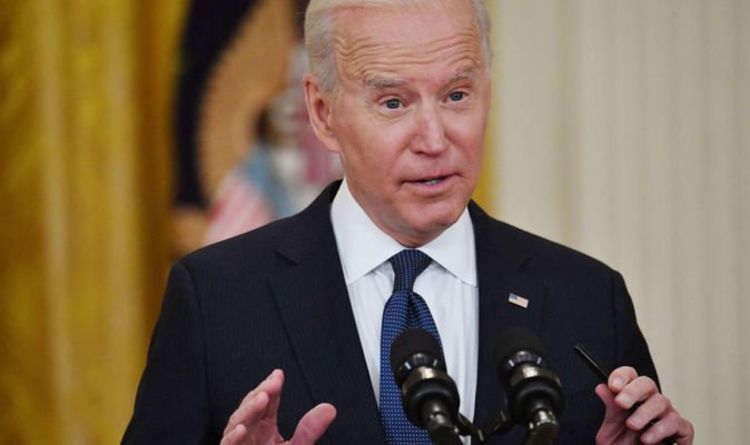Who broke the internet? CIA and FBI scramble to find authors of massive cyberattack
When you subscribe we will use the information you provide to send you these newsletters. Sometimes they’ll include recommendations for other related newsletters or services we offer. Our Privacy Notice explains more about how we use your data, and your rights. You can unsubscribe at any time.
And one expert has said the power wielded by the shadowy DarkSide collective should not be underestimated – warning it poses a “real and present danger”. The attack on Colonial Pipeline, which carries almost half the fuel consumed along the US East Coast, is regarded as one of the most disruptive digital ransom schemes ever reported.
The impact is still being assessed – but the shutdown will inevitably cut fuel availability, push up prices and force refiners to reduce production, because they have no way to ship the gas.
The privately owned company said yesterday it was working flat out to restart in phases with the aim of “substantially restoring operational service by the end of the week”.
The FBI has attributed the cyberattack to DarkSide, a group thought to be based in Russia or Eastern Europe.
Its ransomware targets computers which do not use keyboards in the languages of former Soviet republics.
Marty Edwards, VP of OT Security at US-based cybersecurity company Tenable, told Express.co.uk: “Cyberattacks are a real and present danger to critical infrastructure around the world and, by extension, every single consumer.
“If reports are accurate, the Colonial Pipeline incident has all of the markings of a ransomware attack that began in the IT environment and, out of precaution, forced the operator to shut down operations.
JUST IN: SNP warning – public spending in Scotland 30% higher than in England
We should not underestimate these groups
Marty Edwards
“Ransomware has been a favoured attack vector of cybercriminals because of its effectiveness and return-on-investment. That’s precisely why bad actors have recently set their sights on critical infrastructure.”
Mr Edwards added: “Shutting down operational technology (OT) environments can cost hundreds of millions of dollars, which forces providers to outweigh the costs.
“We should not underestimate these groups. Many of them now have help desks, technical support, payroll processing and subcontractors.
“They are essentially full-fledged criminal corporations operating in the digital world.
DON’T MISS
Hillary Clinton slams Russia over Brexit referendum intervention [COMMENT]
Navy strike group ready should tensions against Russia erupt into war [INSIGHT]
Putin’s poodle! Germany will not support NATO in any wars with Russia [REVEAL]
“While it’s unknown how this attack played out, it’s yet another reminder of the increasing threats to critical infrastructure we all rely on.”
A statement issued in the group’s name yesterday said: “Our goal is to make money, and not creating problems for society.”
The statement did not specifically mention Colonial Pipeline, which is 5,500 miles in length, starting in Houston, Texas, and finishing in New York, by name.
President Joe Biden on Monday said there was no evidence thus far that Russia’s government was involved, but stressed there was evidence that the culprits’ ransomware was in Russia.
The Biden administration is continually assessing the impact of the Colonial Pipeline incident on fuel supply for the East Coast, White House Press Secretary Jen Psaki said in a statement also issued yesterday.
She added: “We are monitoring supply shortages in parts of the Southeast and are evaluating every action the Administration can take to mitigate the impact as much as possible.”
A statement issued by the Russian embassy via Facebook, said: “The Embassy took note of the attempts of some media to accuse Russia of a cyber-attack on Colonial Pipeline.
“We categorically reject the baseless fabrications of individual journalists and reiterate that Russia does not conduct ‘malicious’ activity in the virtual space.”
Gas stations in Georgia, North Carolina and Tennessee have already seen some panic buying, said Patrick De Haan, head of petroleum analysis at GasBuddy.
The American Automobile Association said the national average gasoline price climbed to $2.96 a gallon and could climb to its highest level since 2014.
In Georgia, trucking company owner Marcus Blash worried because his business cannot store fuel on site to hedge against price surges.
He said: “We pay at the pump. It hasn’t hit us yet, but this is going to hurt big time.”
Source: Read Full Article












